Scaling a Promising Model Statewide to Address Inequities in Washington State
Cross Sector State Stakeholder Group
The HOPE state lead in Washington State is the Department of Health (DOH), Washington’s Title V Public Health Agency. In addition to DOH, the Washington CSSSG includes another state department, the Department of Children Youth and Families, a new state agency that merges the former Department of Early Learning with the child welfare agency and will include Juvenile Rehabilitation in July of 2020. The CSSSGalso includes representation from the following organizations:
- WithinReach, a statewide non-profit organization that connects families to food, child development, and health resources, has served as the statewide family health hotline for more than 30 years, and is the Help Me Grow Washington statewide affiliate organization.
- First5 FUNdamentals, a Pierce County based non-profit that supports a statewide network of communities across Washington, as well as Pierce County specific early childhood projects including Help Me Grow.
- Children’s Alliance, which convenes the Early Learning Action Alliance (ELAA) the statewide coalition of early learning advocates.
- Local CSSSG members include Public Health-Seattle and King County, the public health department for both the city and county, which supports the Help Me Grow work of a county-wide levy.
This group was formed after a number of discussions with key stakeholders and resulted in Help Me Grow (HMG) being chosen as the inequity of focus for Project HOPE. Help Me Grow is a model that works to promote collaboration across child-serving sectors in order to build a more efficient and effective system that promotes the optimal healthy development of young children. A broader stakeholder group and the full Essentials for Childhood (EFC) steering committee identified HMG as a policy priority in the Fall of 2017. This project team was formed specifically to manage Project HOPE work. Members represent an active subset of organizations participating in the Help Me Grow Workgroup of the Essentials for Childhood Initiative, and who have ties to key agencies and/or efforts which are addressing Help Me Grow, and with which Project HOPE wants to align. Below please find the name and affiliation for each member of this oversight group:
- Dan Torres—Executive Director, Essentials for Childhood, Washington State Department of Health
- Leslie Carrol– Child Health and Developmental Screening Systems Consultant, Washington State Department of Health
- Judy King—Director of Family Support Programs, Washington State Department of Children, Youth, and Families (DCYF)
- Sharon Beaudoin—Chief Strategy Officer, WithinReach, and Director of Help Me Grow Washington
- Susan Barbeau—Executive Director, First Five Fundamentals
- Marcy Miller—Help Me Grow Strategic Advisor, Public Health-Seattle and King County
- Jill Sells—Health, Early Childhood, and Systems Consultant
- Allison Krustsinger—Early Learning Policy Director, Children’s Alliance
Dan Torres ([email protected]) is the primary point of contact for Project HOPE in Washington State.
Equity Issue and Community of Focus
To promote safe, stable, nurturing relationships and environments for our children, Washington is focused on building a coordinated system to ensure communities identify vulnerable children, link families to community-based services, and empower families to support healthy development in their children through the expansion of the Help Me Grow model. The system will ensure families can connect to the services and resources they need when, where, and how they need them. Systems will align and enable family-centered and culturally relevant services and build protective factors such as concrete support in times of need, social connections, and knowledge of child development to mitigate the impact of trauma and adverse childhood experiences and contribute to dismantling historical, structural racism.
The Washington CSSSG has decided to focus its efforts in Yakima County. Yakima County has shown higher utilization rates of medical programs, WIC, and food programs, showing a need for such programs. Yakima County’s higher rates of program access and successful uptake of programs shows promise for a coordinated approach to connect families to additional services that address existing disparities.
